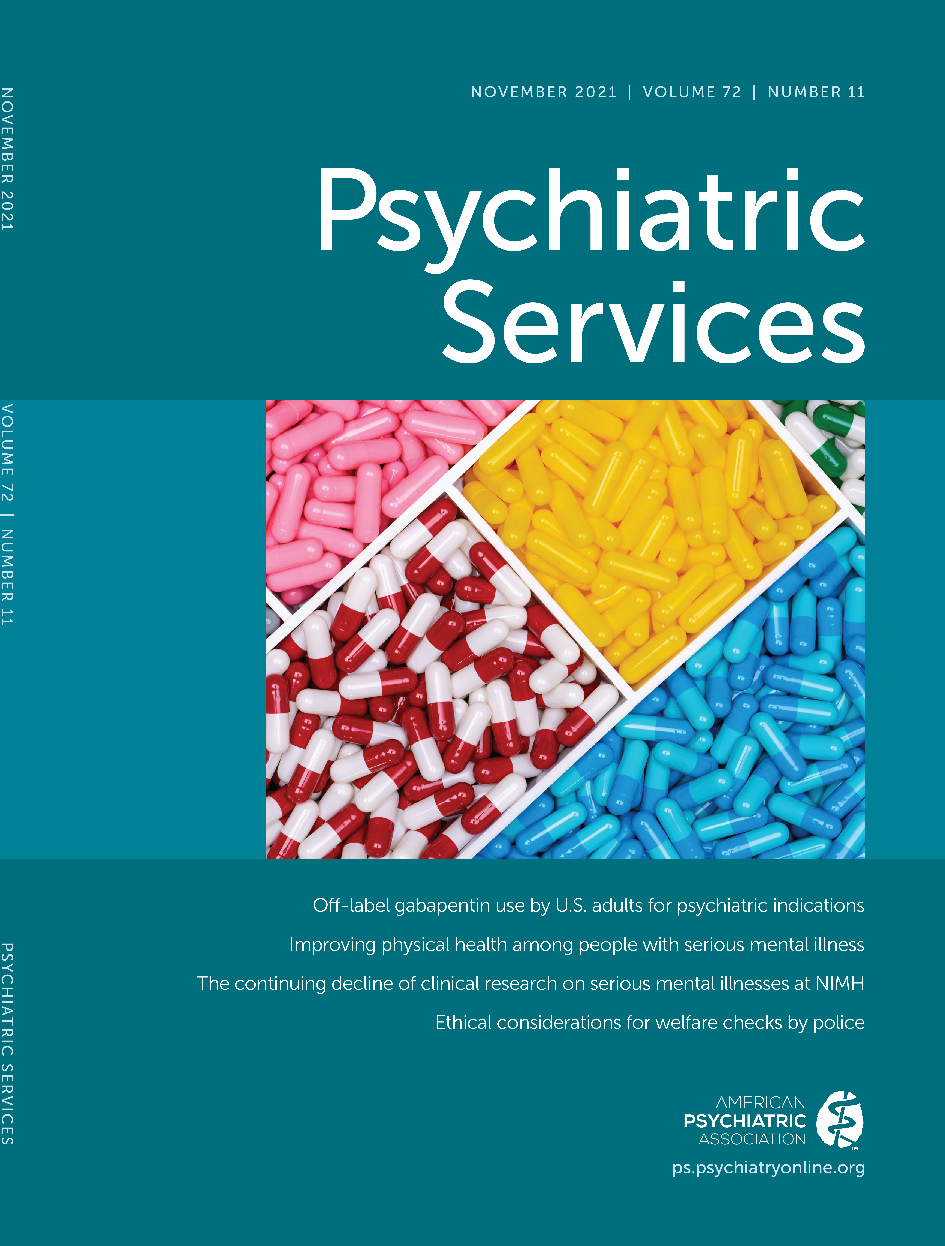Improving Physical Health Among People With Serious Mental Illness: The Role of the Specialty Mental Health Sector
Abstract
People with serious mental illness die 10–20 years earlier, compared with the overall population, and the excess mortality is driven by undertreated physical health conditions. In the United States, there is growing interest in models integrating physical health care delivery, management, or coordination into specialty mental health programs, sometimes called “reverse integration.” In November 2019, the Johns Hopkins ALACRITY Center for Health and Longevity in Mental Illness convened a forum of 25 experts to discuss the current state of the evidence on integrated care models based in the specialty mental health system and to identify priorities for future research, policy, and practice. This article summarizes the group’s conclusions. Key research priorities include identifying the active ingredients in multicomponent integrated care models and developing and validating integration performance metrics. Key policy and practice recommendations include developing new financing mechanisms and implementing strategies to build workforce and data capacity. Forum participants also highlighted an overarching need to address socioeconomic risks contributing to excess mortality among adults with serious mental illness.



